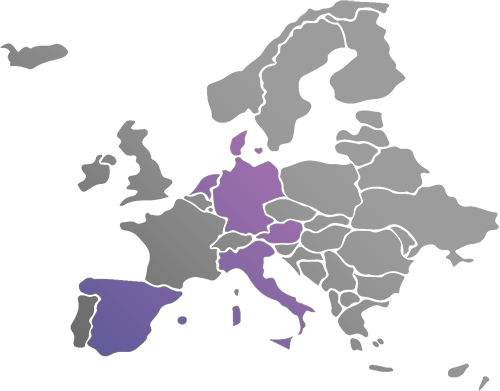
BENEFICIARIES

UNIVERSITAT POLITÉCNICA DE VALÉNCIA (UPV). Project Coordinator. Spain
Universitat Politècnica de València (UPV) is one of the leading universities in Spain and is listed in all the world university rankings. It is one of the Spanish top five Universities with the highest revenue from both public research and knowledge transfer activities, and is a national leader in patent license income and start up creation. With an R&D activity of over 52 million euros, UPV has participated in 113 FP7 actions and led 29 of them, with around 30.4 million euros of EU contribution. In H2020, UPV already participates in 84 projects (October 2017) and leads 14 of them.
UPV-I3B, is a thoroughly consolidated centre of excellence in R&D (founded in 1992) with more than 50 staff members that work in a multidisciplinary team made up of engineers, physicians, psychologists, mathematicians, designers and experts in man-machines interfaces.
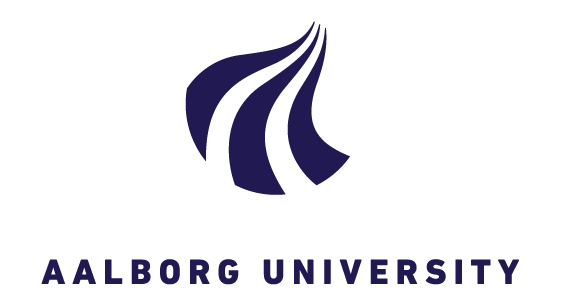
AALBORG UNIVERSITY (AAU). Denmark.
Aalborg University (AAU) differentiates itself with its focus on interdisciplinary, inter-faculty studies which internationally has become known and recognized as The Aalborg PBL Model. It is the only Danish university that is a member of the European Consortium of Innovative Universities (ECIU).The Architecture, Design and Media Technology department (AD:MT) has a proven and long experience regarding innovative media technology, immersive computer systems, media cognition and digital culture. It actively participates in many research projects and collaborations with industry and counts with state of the art laboratories, including the Augmented Cognition Lab, which is dedicated to the study of perception, cognition, affective states and aesthetic experience when interacting with complex stimuli and narrative content provided through immersive and representational interactive displays.

University Hospital Bonn (UKB). Germany
The University Hospital of Bonn is one of Germany’s leading medical institutions with a focus on neuroscience and immunology. The Center for Economics and Neuroscience is a core centre of the University, at the interface of psychology, neuroscience and economics, to investigate human decision making. The Center for Economics and Neuroscience (CENs) was founded in 2009 by Christian Elger, Armin Falk, Martin Reuter and Bernd Weber. It combines knowledge and methods from neuroscience, behavioural genetics, medicine and economics to deepen our understanding of human behaviour, especially in economically relevant contexts. CEN also provides a platform for the field of neuroeconomics within Germany and internationally with the aim of fostering interdisciplinary work.
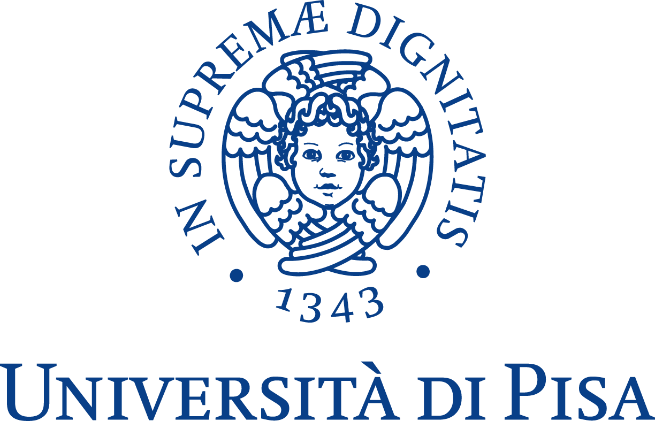
Università di Pisa (UPISA). Italy
The University of Pisa (UPISA), founded in 1343, is among the oldest and most prestigious universities in Europe, with alumni such as Galilei, Volterra and Fermi. In RHUMBO, UNIPI is represented by the “E. Piaggio” Research Centre.
The Enrico Piaggio Research Centre, founded in 1962 and recently promoted to the status of Centro di Ateneo, has longstanding experience in managing contracts with EU, international and industrial partners. At the Centre, multidisciplinary research is carried out in the fields of Bioengineering, Robotics and Automation by more than 100 researchers. In recent times, the Bioengineering group of the Centre has focused most of its scientific interests on developing fabric-based wearable systems to monitor physiological signals and biomechanical parameters, including advanced signal processing and multi-parametric analysis

Universitat de València (UVEG). Spain
The University of Valencia, UV, founded 5 centuries ago, is a holistic university that offers degrees in all fields of knowledge: 54 degree qualifications, 6 double degrees and 4 international double degrees; 116 master’s degree qualifications, two of them within the Erasmus Mundus programme; 64 doctoral programmes, 24 of them with Excellence Mention. The Faculty of Economics was recognised in 2015 as the second Spanish university in Economics and Business Administration by the ranking of academic excellence of Shangai. The Faculty of Economics has the best professors in economics and business at a national level according to the H-Index Scholar and RePEC rankings.
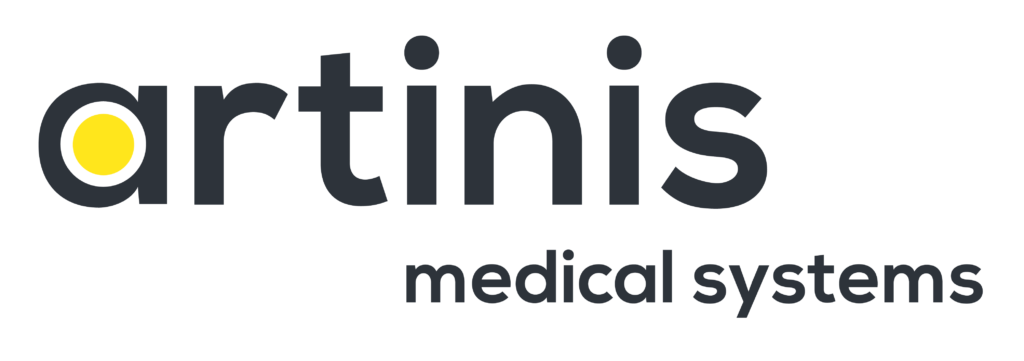
Artinis Medical Systems BV (AMS). The Netherlands
Artinis Medical Systems is a small and innovative Dutch company active in the field of medical research and quality assurance, and developments in the field of near infrared spectroscopy (NIRS) devices. In this project, AMS will provide unique expertise in the application of (functional) NIRS to image brain activation. Their fNIRS devices can be used to monitor oxygen supply and consumption non-invasively in living tissue (both brain and muscle). AMS is the only EU company that has succeeded in producing high quality and versatile fNIRS devices with the potential to revolutionise peripheral brain imaging. These devices complement fMRI studies but free the researcher from the confines of a scanner, allowing imaging studies in restricted environments, such as neonatal care units, and real life situations.
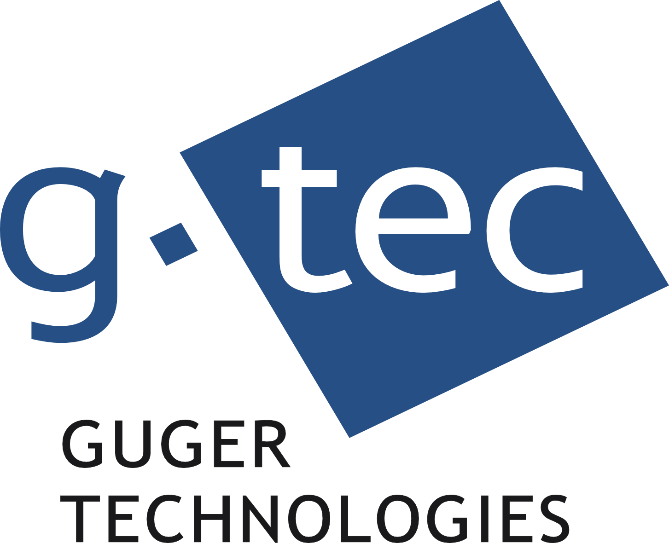
G.TEC medical engineering GmbH (GTEC). Austria
GTEC is an R&D performing SME with about 30 employees. GTEC was founded in 2004 in Schiedlberg, Austria by Drs. Guger and Edlinger. GTEC has long been recognized as a top manufacturer within BCI research, and is now expanding to related domains such as stroke rehabilitation, memory rehabilitation, coma assessment and communication, and functional brain mapping for neurosurgery. GTEC is also very active in dissemination, with dozens of peer-reviewed publications, several books, over 250 completed workshop/Open House events, and extensive participation in conferences, expositions, summer schools and other external events. GTEC has its own research and development department. We are very active in international research projects and provide and develop new technology within many different fields, including BCI, physiology, Virtual Reality, real-time processing, and spike analysis. All developments are done within the company.
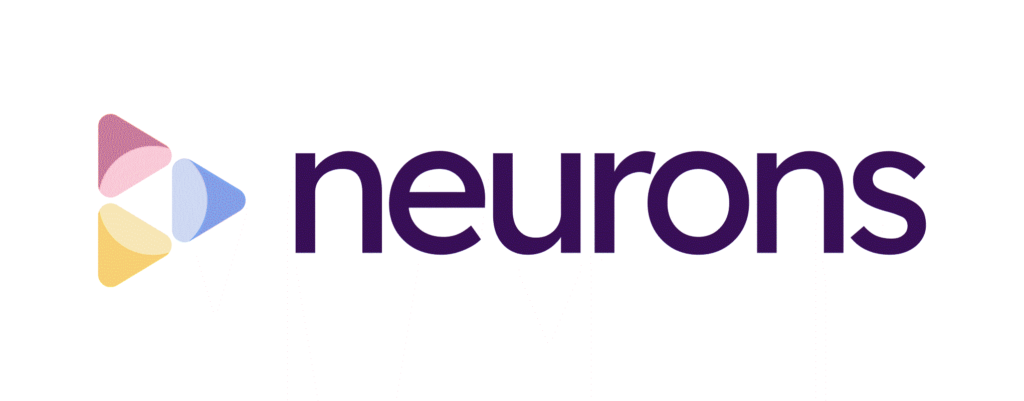
Neurons Inc (NEUR). Denmark
Neurons is the world’s leading consumer neuroscience company. Since 2013, we have worked with Fortune-500 companies to optimize every part of their customer journey, including advertising, retail, user experience, innovation, tech, and beyond. We offer a suite of neuroscience products that comprise Predict, a cloud-based, attention prediction AI; Explore, a remote neuroscience user testing platform; and Research, a bespoke, full-scale research solution.
PARTNER ORGANIZATIONS
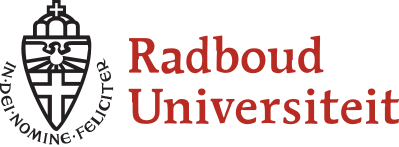
Stichting Katholieke Universiteit (SKU). The Netherlands
Radboud University is a leading university in the Netherlands with approximately 21,000 students and 2,764 scientific staff. The Donders Institute (DI) is a world-class research centre devoted to understanding the mechanistic underpinnings of human cognition and behaviour. DI mission is to conduct interdisciplinary research at the unique interface between genetic, molecular and cellular processes at one end and computational, system-level neuroscience with cognitive and behavioural analysis at the other end. Its four main research themes are: 1) Language and Communication, 2) Perception, Action and Control, 3) Plasticity and Memory, and 4) Brain Networks and Neuronal Communication.

Johannes-Kepler University (JKU). Austria
The Institute for Integrated Circuits provides expertise in the design and realisation of integrated circuits, embedded systems, as well as cyber-physical systems. This includes modelling corresponding architectures in early stages of the design flow and their final application. IIC focuses strongly on the design of low-power/high-speed analogue and mixed-signal radio frequency (RF) integrated circuits (IC) up to mm-wave frequencies for applications in 5G comm. systems, wireless sensor and RFID networks (IoT) and medical apps.
